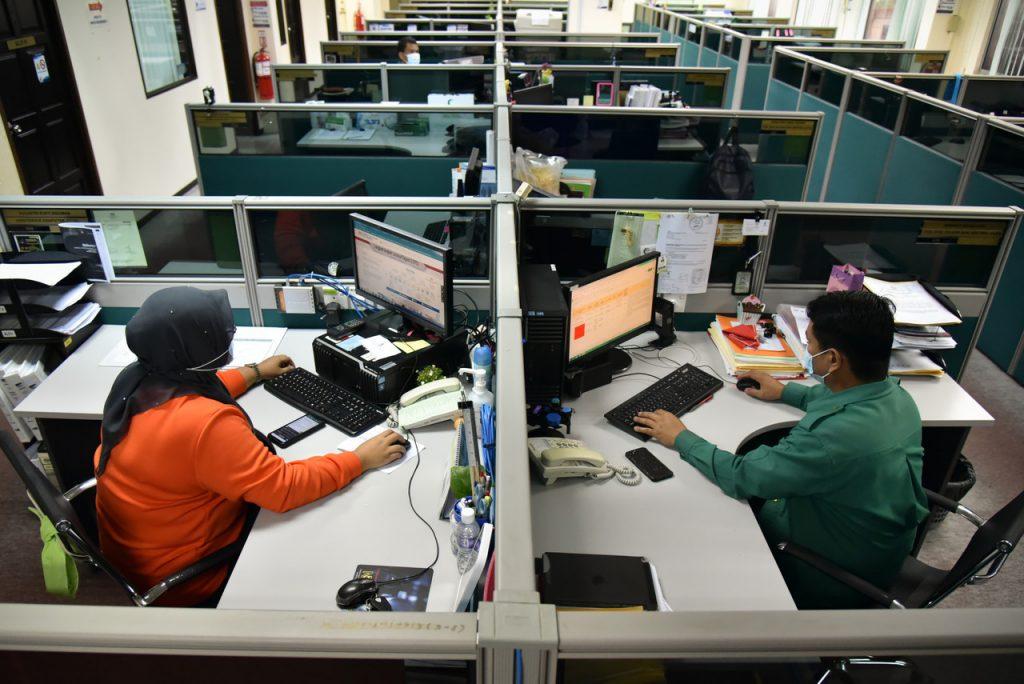The long climb up the food chain for fresh grads
With the economy still reeling from the effects of the Covid-19 pandemic, experts see no immediate solution for fresh graduates seeking 'adequate' pay.
Just In
Rasyidah Zulkifli began job hunting almost immediately after graduating in January. She sent out more than 150 applications through various online platforms and received exactly four calls for interviews.
Of these, two were for low-skill jobs that did not require a degree.
“I was offered RM1,200 for both vacancies. I declined as I wanted to find a better opportunity, and I thought the salary was too low,” she said.
Her luck improved in her third interview. She asked for a salary of RM2,000 and received an offer for slightly below that.
“I thought this offer was better than the other two, so I accepted it. But even then, I think the salary is still relatively lower than the market rate.”
Things could be worse, though. At least this job is related to her field of study.
Rasyidah’s experience is the story of millions of fresh graduates across the country who are struggling to find a job that will cover their basic expenses.
In January this year, government statistics showed that the unemployment rate had risen by 0.1% from the previous month to 4.9%, taking the total figure to 782,500 from 772,900 in December.
And according to Bank Negara Malaysia’s 2018 annual report, the real starting salary for most fresh graduates has been on the decline since 2010, even after taking inflation into account.
“A fresh graduate with a diploma earned a real salary of only RM1,376 in 2018 (2010: RM1,458) while a masters degree holder earned a real salary of RM2,707, a significant decline from RM2,923 in 2010,” the report said.
Rasyidah said she expects a salary of RM2,500 for fresh graduates in her field of study. While the offer she accepted was for less than that, she views it as a starting point for her to find something better down the line.
For now, her salary will cover her cost of living although there will be little left over for savings or emergencies.
According to Bank Negara Malaysia’s 2018 annual report, the real starting salary for most fresh graduates has been on the decline since 2010.
Mohamad Fazli Sabri, dean at the faculty of human ecology at Universiti Putra Malaysia, said the current minimum wage of RM1,200 is very low.
Speaking to MalaysiaNow, he said offering this amount to fresh graduates, especially those who live in the city, would leave them close to being categorised as “extreme poor”.
“Both parties need to have a win-win situation,” he said. “Fresh graduates need to keep in mind that they have no experience and employers should not push wages lower than they should be.”
Noting that the statistics department had revised the national poverty line income from RM980 to RM2,280 last year, he suggested that this be used as a benchmark in determining wages, at least for those with qualifications.
While many fresh graduates are struggling to find a job that pays enough, they are far from being the only ones.
According to the Bank Negara report, Malaysian workers in general are paid less than their regional counterparts in countries such as Singapore and South Korea.
“To illustrate this point, if a Malaysian worker produces output worth US$1,000, the worker will be paid US$340 for it. The corresponding wage received by a worker in benchmark economies for producing the same output worth US$1,000 is, however, higher at US$510.80,” the report said.
It said this was more evident in sectors such as wholesale, retail, food and beverages, and accomodation – labour-intensive industries reliant on low-skilled workers. It attributed the disparity in wages to workers’ low bargaining power in the presence of foreign workers.
For economist Barjoyai Bardai, there is light at the end of the tunnel although he admits to seeing no immediate solution to the issue.
“The industry has its own principles that workers are paid based on productivity. Employers often complain that the productivity of graduates today is declining, not because of their lack of knowledge but because they enter the industry without soft skills.
“Twenty years ago, employers did not expect graduates to have ‘anticipative skills’ but today, they are deemed necessary although graduates do not have it.”
He told MalaysiaNow there is a need for structural change from all parties.
“We can’t force employers to raise salaries because they have their own strategies in business. But what we can do is to upskill those who have joined the workforce.
“If graduates continue feeling that their skills are adequate, they will end up job-hopping from one firm to another. And that would not solve anything.”
Subscribe to our newsletter
To be updated with all the latest news and analyses daily.
